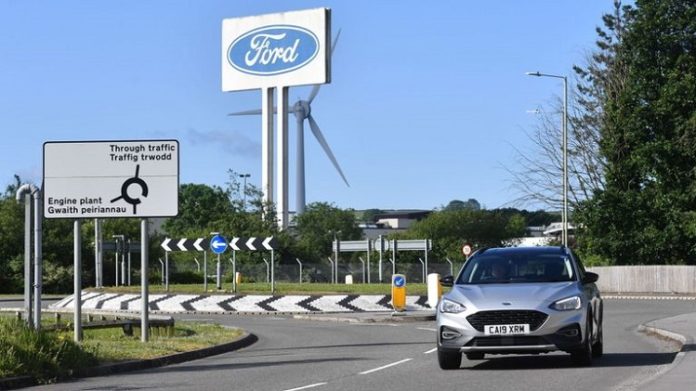“Changing customer demand and cost disadvantages, plus an absence of additional engine models for Bridgend going forward, make the plant economically unsustainable in the years ahead,” Ford Europe President Stuart Rowley said in a statement on Thursday.
The Bridgend plant built about 20% of Britain’s 2.7 million automotive engines last year. While Ford reiterated its commitment to other UK plants such as Dagenham and the remainder of an almost 9,000-person British workforce, the planned closure of Bridgend by September 2020 was condemned by labor groups.
“We will resist this closure with all our might, and call upon the governments at the Welsh Assembly and Westminster to join us to save this plant,” McCluskey said.
The remaining non-cash charges of approximately $250 million will include pension expenses and accelerated depreciation and amortization.
Ford said most of the pre-tax special item charges will be recorded this year and most of the cash outflows will occur in 2020.
The UK government will work closely with Ford, trade unions and other stakeholders, a spokesman said on Thursday, following the automaker’s announcement.
“The news of their intention and consultation on closing the Bridgend plant will be very worrying for the dedicated workforce,” the spokesman said. “Ford has committed to supporting employees throughout the consultation process and beyond, including with redeployment opportunities to other Ford sites in the UK.”
Brexit plans
Workers have long pushed for Bridgend to produce hybrid technology and electric vehicle components alongside a new third-party manufacturer to fill any surplus space but such investment has not been forthcoming.
“Significant efforts to identify new opportunities have not been successful,” Ford said.
In common with other automakers with a UK manufacturing presence, the future of Ford’s remaining operations in the country may depend on how the British government proceeds with a plan to leave the European Union by Oct. 31. The automaker warned earlier this year that a so-called no-deal exit would have “catastrophic” implications for its operations in the country, where it is the top-selling auto brand.
The Bridgend closure follows the decision by Honda to shutter its Swindon plant in 2021 with the loss of 3,500 jobs. Nissan no longer plans to build the X-Trail SUV in Sunderland, northern England, while Jaguar Land Rover is cutting 4,500 positions worldwide, many of them in the UK.
Ford is also closing factories in Germany, France and Russia as part of a deep retrenchment in Europe to weed out slow-selling models. The company wants to focus mainly on its commercial van and pickup truck businesses on the continent, where Ford made a pretax loss of $398 million last year.




